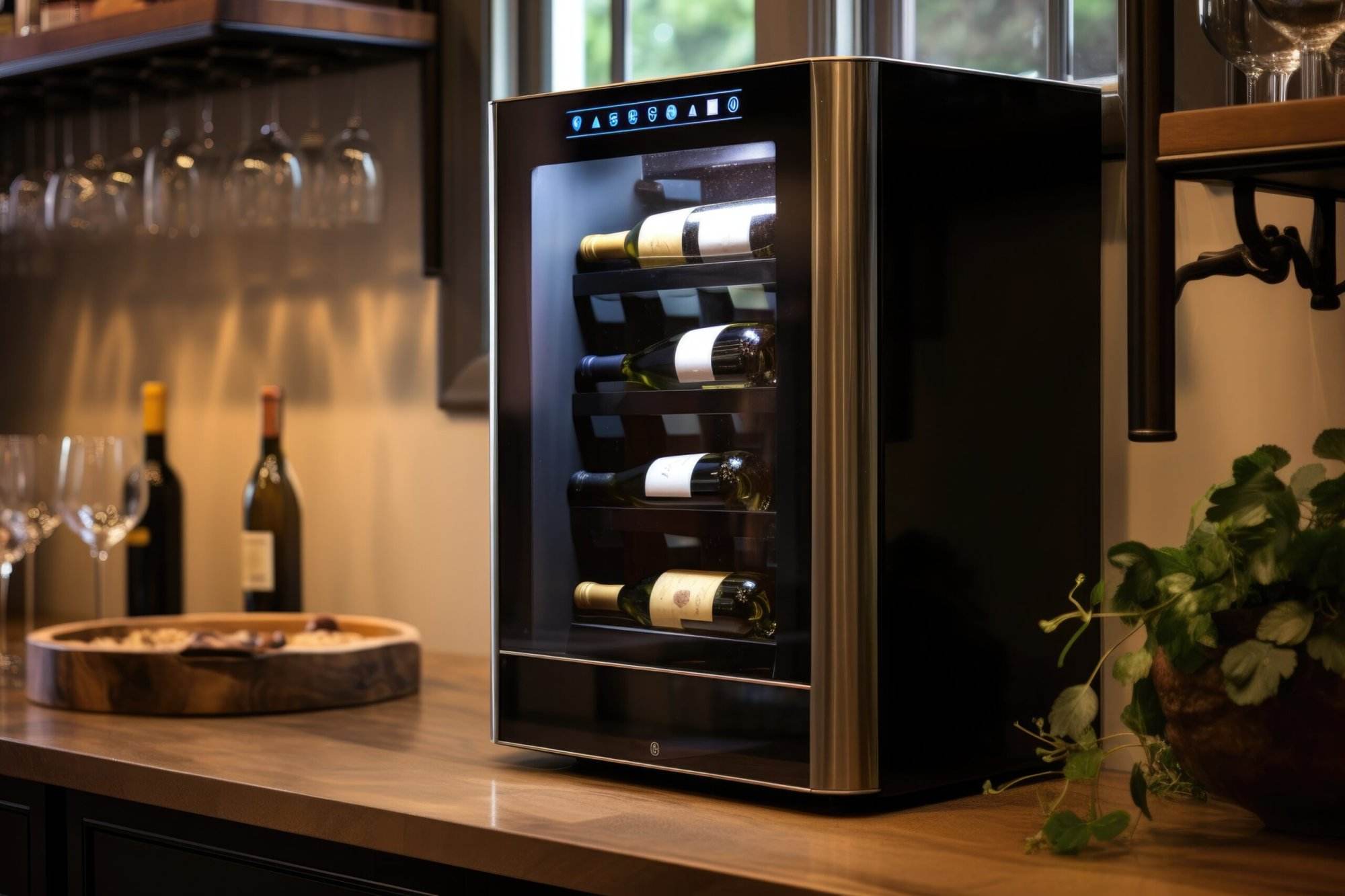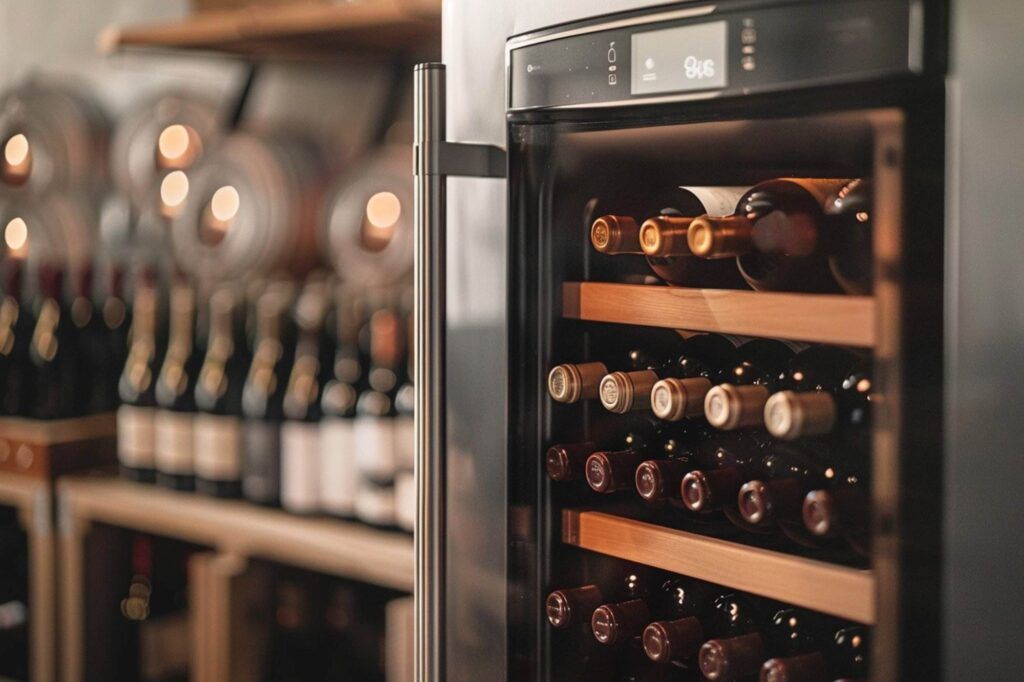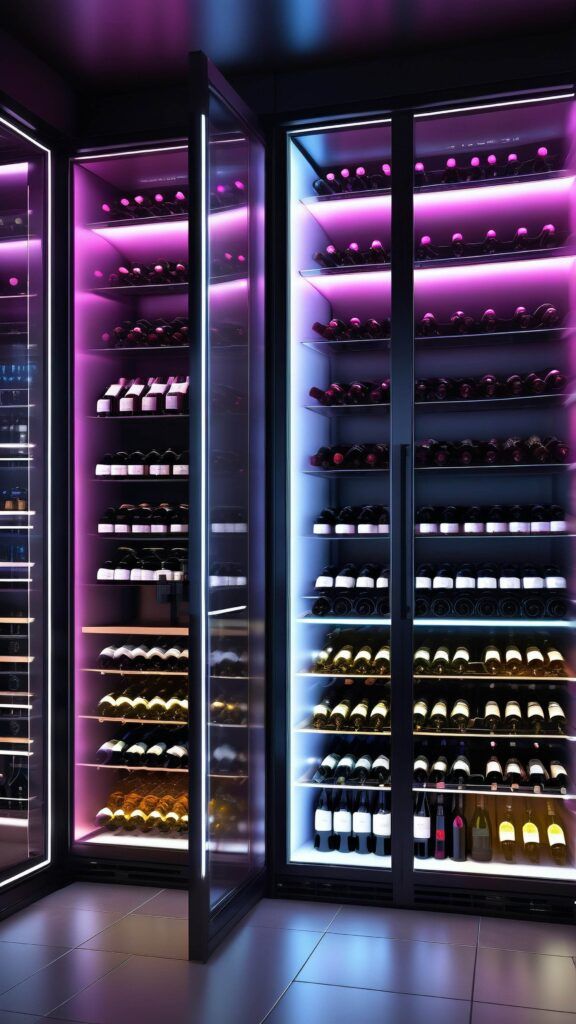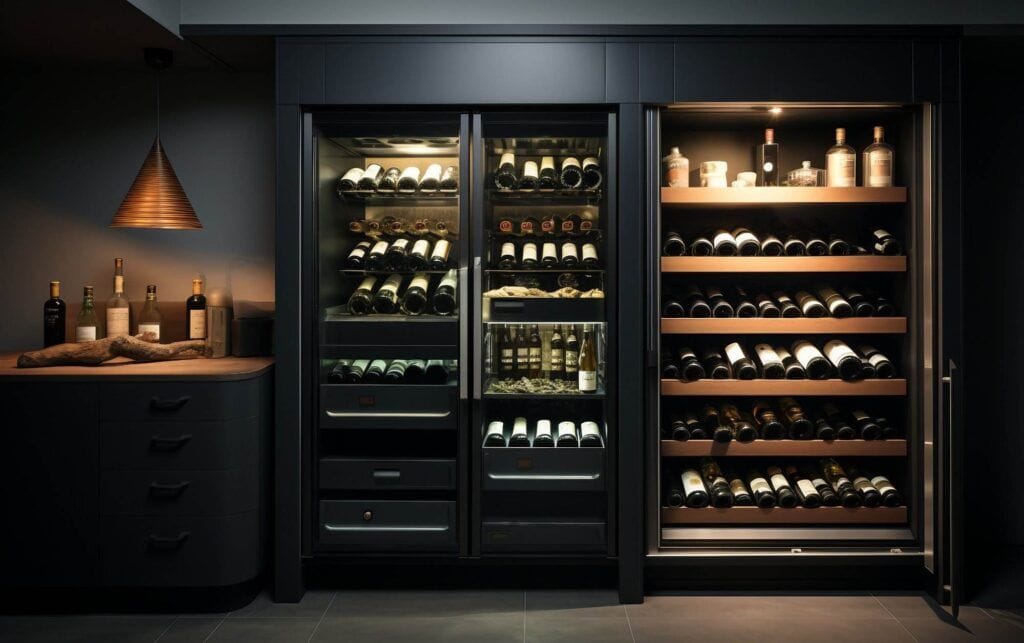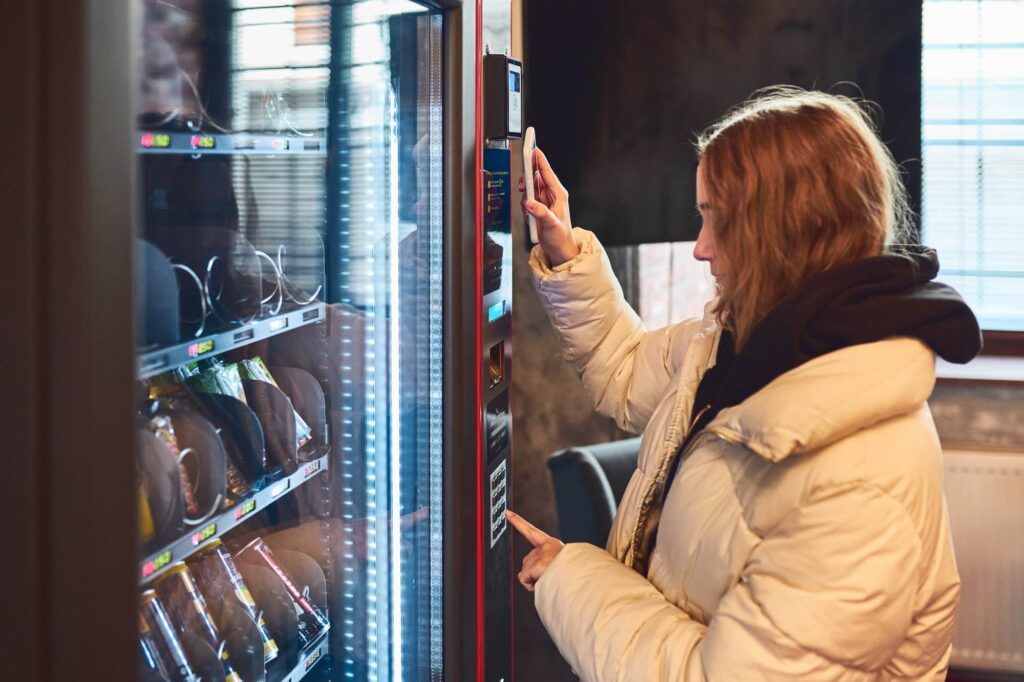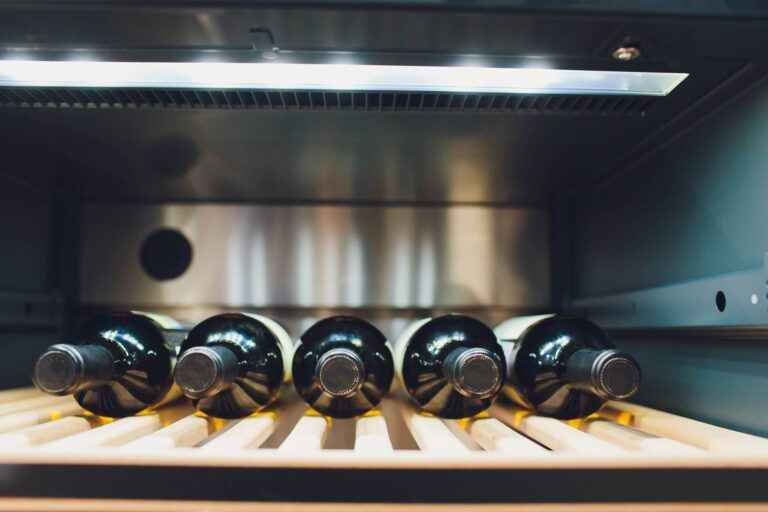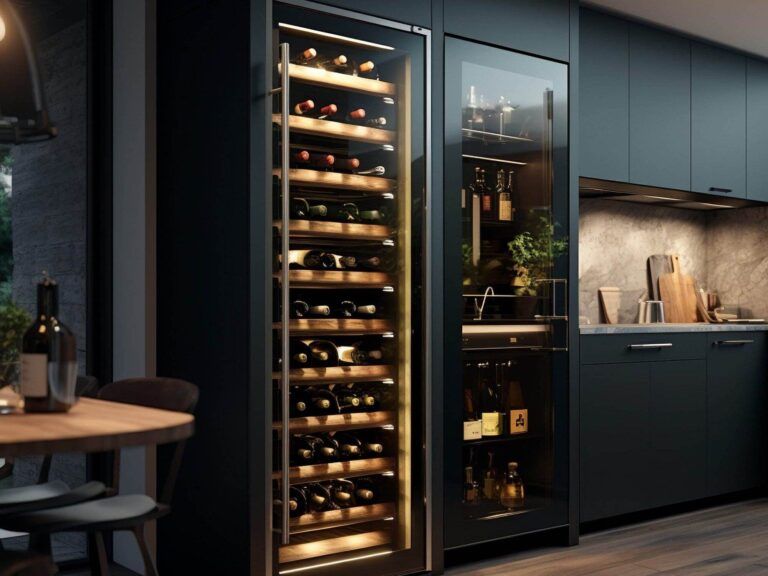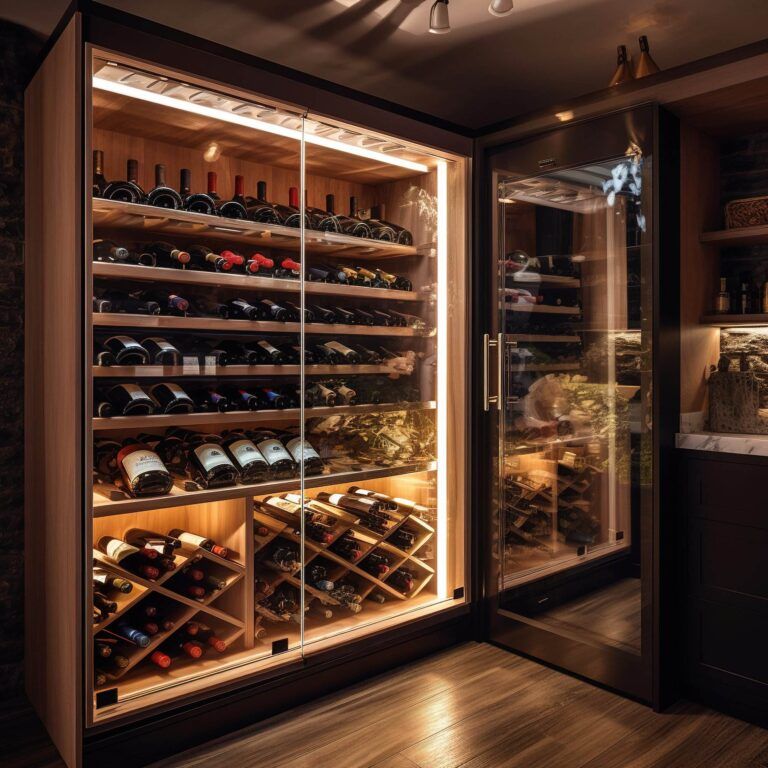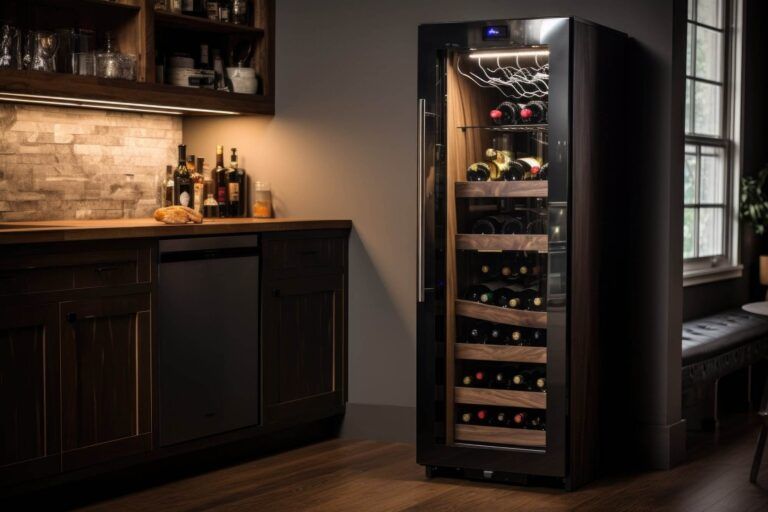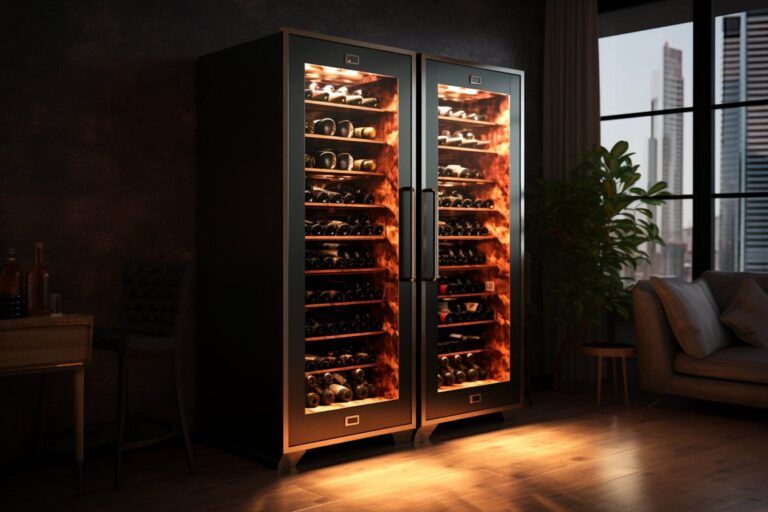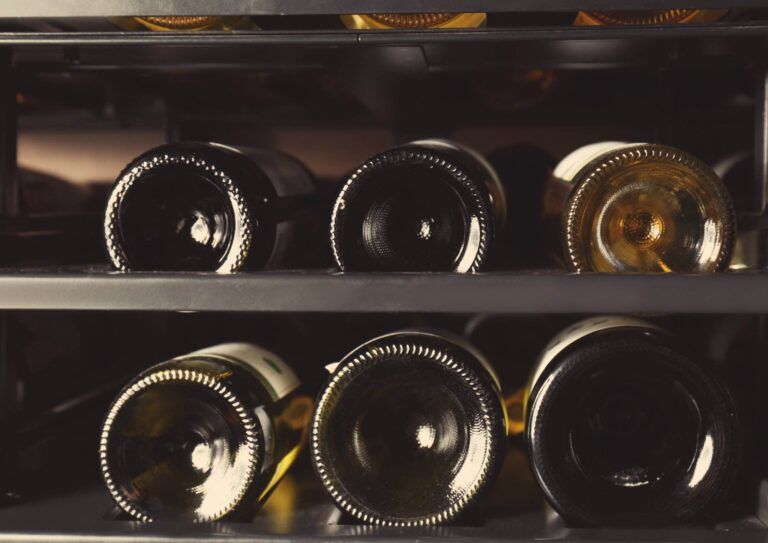How to Properly Age Wine in a Wine Refrigerator at Wine Hardware
Benefits of Properly Aging Wine in a Wine Refrigerator
Properly aging wine in a wine refrigerator offers several benefits. Firstly, it allows the wine to develop complex flavors and aromas over time, enhancing its overall quality. Additionally, the controlled temperature and humidity settings provided by a wine refrigerator ensure the wine ages in optimal conditions, avoiding spoiling or oxidation. Lastly, having a dedicated space for aging wine allows for better organization and easy access to properly aged bottles when the time comes to enjoy them.
Benefits of aging wine
Aging wine offers a multitude of benefits. It allows the wine to develop complex and nuanced flavors and aromas, enhancing its overall quality. The process of aging also helps to soften the tannins in red wines, creating a smoother and more enjoyable drinking experience. Additionally, aged wines often have a greater depth and complexity that cannot be achieved with younger wines.
So, it’s well worth the investment of time and effort to age your wine properly.
Importance of using a wine refrigerator for aging wine
Using a wine refrigerator for aging wine is crucial to maintain optimal conditions. Wine Hardware’s refrigerators offer precise temperature control to ensure the wine ages correctly. The refrigeration units also provide the ideal humidity levels, preventing the corks from drying out and maintaining the integrity of the wine. Investing in a wine refrigerator guarantees that your wine will age gracefully and be ready for enjoyment when the time comes.
Choosing the Right Wine Refrigerator for Aging Wine
When choosing a wine refrigerator for aging wine, there are several factors to consider. It’s important to select a refrigerator that offers precise temperature control, allowing you to maintain the ideal conditions for aging wine. Wine Hardware provides a range of refrigerators specifically designed for wine storage, ensuring that your wine ages gracefully. Consider the size, capacity, and features offered by different models to find the perfect wine refrigerator for your needs.
Factors to consider when selecting a wine refrigerator
Factors to consider when selecting a wine refrigerator include size, capacity, and features. It’s important to choose a refrigerator that can accommodate the number of wine bottles you plan to age. Consider the available space in your home and select a size that fits your needs. Look for features such as precise temperature control, UV protection, humidity control, and vibration reduction to ensure optimal wine aging conditions. Wine Hardware offers a variety of wine refrigerators that meet these criteria.
Different types of wine refrigerators available for aging wine
There are several types of wine refrigerators available for aging wine. One option is a freestanding wine refrigerator, which can be placed anywhere in your home. Built-in wine refrigerators are designed to fit seamlessly into your existing cabinetry. Dual-zone wine refrigerators feature separate temperature zones, allowing you to store both red and white wines at their ideal temperatures. Finally, there are thermoelectric wine refrigerators, which use a cooling system that is quiet and vibration-free. These different types of wine refrigerators offer various features and options to suit your specific needs.
Setting the Ideal Temperature for Aging Wine in a Wine Refrigerator
The ideal temperature for aging wine in a wine refrigerator is crucial to preserving its quality. Wine Hardware recommends a consistent temperature between 45°F and 65°F (7°C-18°C). Higher temperatures can accelerate the aging process, resulting in a loss of flavor and complexity. Lower temperatures may slow down the aging process, preventing the wine from reaching its optimal taste. It is essential to maintain a stable temperature for the desired aging outcome.
The importance of temperature control in wine aging
Proper temperature control is vital for wine aging in a wine refrigerator. Consistent temperatures allow the wine to mature gracefully and develop its complex flavors. Fluctuating temperatures can cause oxidation, leading to a loss of aroma and taste. Maintaining an ideal temperature range of 45°F to 65°F (7°C-18°C) ensures that the wine ages at an appropriate pace, resulting in a more enjoyable and flavorful experience.
Recommended temperature settings for different types of wine
Recommended temperature settings for different types of wine are essential to ensure optimal aging. For red wines, such as Cabernet Sauvignon and Merlot, a temperature range of 55°F to 65°F (13°C-18°C) is recommended. White wines, like Chardonnay and Sauvignon Blanc, should be stored at slightly cooler temperatures, around 45°F to 55°F (7°C-13°C). Sparkling wines, such as Champagne, require even lower temperatures, ideally around 40°F to 50°F (4°C-10°C). Adhering to these temperature guidelines will ensure that each type of wine ages beautifully and retains its unique characteristics.
Organizing and Storing Wine in a Wine Refrigerator for Aging
Proper storage techniques are crucial for aging wine in a wine refrigerator. Wine bottles should be placed horizontally to keep the cork moist and prevent oxidation. It is advisable to organize the wine bottles by type, varietal, or region for easy access. Avoid moving the bottles too frequently as it can disrupt the aging process. Maintaining a consistent temperature and ensuring the bottles are securely placed will contribute to the successful aging of the wine.
Proper storage techniques for aging wine in a wine refrigerator
To properly store and age wine in a wine refrigerator, it is important to follow some key techniques. First, wine bottles should be placed horizontally, which helps keep the cork moist and prevents oxidation. Additionally, organizing the wine bottles by type, varietal, or region can make them easier to locate. Avoid frequent movement of the bottles, as it can disrupt the aging process. Lastly, maintaining a consistent temperature and ensuring secure placement of the bottles are important for successful aging.
Tips for organizing wine bottles in a wine refrigerator
When organizing wine bottles in a wine refrigerator, it is important to keep a few tips in mind. First, arrange the bottles by type or varietal to make it easier to locate specific wines. Use a labeling system or inventory sheet to keep track of what you have. Place older bottles towards the back and newer ones towards the front for easier access. Avoid stacking bottles on top of each other, as this can lead to damage. Lastly, leave some empty space between bottles to allow for proper airflow and circulation.
Monitoring Humidity Levels for Wine Aging in a Wine Refrigerator
Proper monitoring of humidity levels is crucial for wine aging in a wine refrigerator. Maintaining an optimal humidity range of 50% to 70% helps prevent the corks from drying out and oxidation of the wine. Wine Hardware offers wine refrigerators with built-in humidity controls to ensure a constant and suitable environment for your wine collection. Regularly check the humidity levels and adjust as needed to preserve the quality and flavor of your wines.
Significance of humidity in wine aging
Maintaining proper humidity levels is essential for wine aging in a wine refrigerator. Humidity helps prevent the corks from drying out, which can lead to oxidation and spoilage of the wine. The right moisture level, typically between 50% to 70%, ensures that the corks remain sufficiently moist and airtight. This promotes the proper aging process, preserving the wine’s flavor, aroma, and overall quality. Wine Hardware’s wine refrigerators offer humidity controls to create an optimal environment for aging wine.
Methods to maintain optimal humidity levels in a wine refrigerator
To maintain optimal humidity levels in a wine refrigerator, there are a few methods that can be employed. One option is to place a bowl of water inside the refrigerator to naturally release moisture into the air. Another method is to use a humidifier specifically designed for wine refrigerators. These devices can be adjusted to regulate the humidity levels to the desired range. Additionally, regularly checking the humidity levels with a hygrometer and making necessary adjustments can help ensure a consistently appropriate environment for wine aging. Wine Hardware offers wine refrigerators with built-in humidity control to simplify the process.
Enjoying Properly Aged Wine from a Wine Refrigerator
Enjoying properly aged wine from a wine refrigerator is a delightful experience. After patiently waiting for the wine to reach its optimal maturity, it’s time to savor the fruits of your labor. When the moment arrives, carefully remove the bottle from the wine refrigerator and allow it to breathe for a few minutes. Serve the wine in appropriate glassware to enhance its aromas and flavors. Take your time to savor each sip and appreciate the nuances that age has bestowed upon the wine. Cheers to a well-aged and well-enjoyed bottle of wine!
How to know when wine is ready for consumption
When determining if wine is ready for consumption, there are a few key indicators to look for. First, check the color of the wine. If it has deepened and become more vibrant, it may be ready to drink. Next, give the wine a sniff. If the aromas are well-integrated and pleasing, it is likely matured. Finally, take a small sip and pay attention to the flavors. If the wine is balanced and has developed complexity, it is ready to be enjoyed. Trust your senses and let them guide you in determining when your wine is at its peak.
Tips for serving and savoring aged wine from a wine refrigerator
To fully enjoy the benefits of aging wine in a wine refrigerator from Wine Hardware, there are a few tips to keep in mind. First, allow the wine to breathe by decanting it before serving. This will help to enhance the flavors and aromas. Second, serve the wine at the recommended temperature to ensure optimal taste. Lastly, use proper glassware that allows the wine to showcase its characteristics. By following these tips, wine enthusiasts can savor the full potential of their aged wines.

